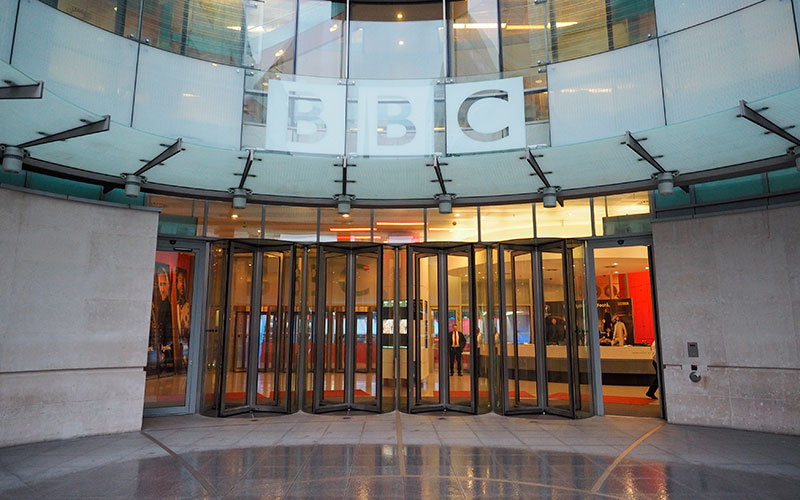BBC comes under fire from presenters and industry for poor IR35 advice

The BBC has been accused of being “cack handed” in the way it allegdedly encouraged presenters to work through personal service companies (PSCs).
The presenters previously worked for the organisation through PSCs before the public sector IR35 reforms were introduced.
The Guardian reports earlier this week the Commons culture committee released a dossier of evidence from presenters who claim the BBC put pressure on them to be employed via a PSC, rather than as a member of staff, only for them to find themselves targeted by an HMRC clampdown on the use of PSCs.
The evidence was released ahead of a hearing yesterday in which presenters Liz Kershaw and financial journalist Paul Lewis gave evidence to an inquiry by the committee into the use of PSCs.
In April last year a change in the law meant public sector end clients became responsible for determining whether a worker, who operates through a personal service company or intermediary, is caught by IR35 or is genuinely self-employed.
Where the worker is caught by IR35, the rules also make the fee payer, who will often be a recruitment agency, responsible for deducting and then paying the worker’s tax, National Insurance and employer’s NI.
At yesterday’s hearing the BBC came under fire from Lewis over the way the organisation had allegedly encouraged journalists to work through PSCs.
“I have to say it’s done it in such a cack-handed way that many people have been faced with the financial difficulties – double taxation, no pay, threats of no work and that’s led to that dossier of despair – shall I call it – that was presented to you.
“It is sad to us that it took the publication of that to arouse the BBC to say what it was saying last night of an inquiry and also isn’t it shaming that a story in the press about how the BBC treats its presenters should have to have a warning at the bottom and the Samaritans number? I think that really is a shocking indictment…
“These are not highly paid people … these are local radio presenters – Radio 3, Radio 4, treated by the BBC as flexible disposable workers when they took the risk but when as soon as that risk was moved to the BBC, it decided to change their status…”
Commenting on the session, Dave Chaplin, CEO and founder of ContractorCalculator, an online portal for freelancers and contractors, said: “What we have heard today is one big BBC fiasco that highlights the mess that the public-sector reforms have created. The BBC has been accused of purposefully misclassifying its workers to avoid paying employers NI contributions. Due to the imbalance of the IR35 rules, prior to the changes in April 2017, the presenters are now faced with the tax bills that should have historically been paid by the BBC.
“Under the reformed rules, currently only applicable in the public sector, the BBC would be forced to pay their fair share of the taxes avoided. It appears to make sense that the BBC now picks up the part of those tax bills which they avoided and fairly shares the tax burden for what they are being accused of facilitating on a mass scale. However, as Liz Kershaw pointed out, it seems wholly unfair that licence payers will be picking up the tab.”
Meanwhile Julia Kermode, CEO of trade association The Freelancer & Contractor Services Association (FCSA), said the case had shone another spotlight on employment status.
“We cannot continue to turn a blind eye and ignore it. Flexibility must work both ways.
“Matthew Taylor highlighted in his report that that the balance of power is often too heavily biased towards the businesses that engage contingent workers in all their guises. Big corporations are able to exploit the individuals by forcing them to be engaged in certain ways if they want to work, and whether these individuals are TV and radio presenters or pizza delivery couriers they should not be exploited.
“No one should be forced to work in a particular way if it is not appropriate to their circumstances, nor if they do not fully understand the arrangement. In this case, the BBC presenters were allegedly told to set up their own limited company, making the presenters directors of their company, which brings with it certain legal responsibilities as per any company director role.
“Also, the BBC case once again illustrates that good advice on IR35 status is critical and I fear that the BBC presenters did not get good advice and, in the eyes of the law, are ultimately responsible for their own tax affairs, even if they were unfairly coerced into a certain arrangement.”
For their part, a BBC spokesperson said the organisation recognised there are issues to address: “That’s why we have set up a fair and independent process under the supervision of the Centre for Effective Dispute Resolution to determine the right approach where on-air presenters believe the BBC bears some liability in relation to demands for Employers NICs.
“We are mindful to balance our responsibilities to presenters with our responsibility to licence fee payers and will ask CEDR to consider the criteria for which cases should be considered.”
• Comment below on this story. You can also tweet us to tell us your thoughts or share this story with a friend. Our editorial email is [email protected]




